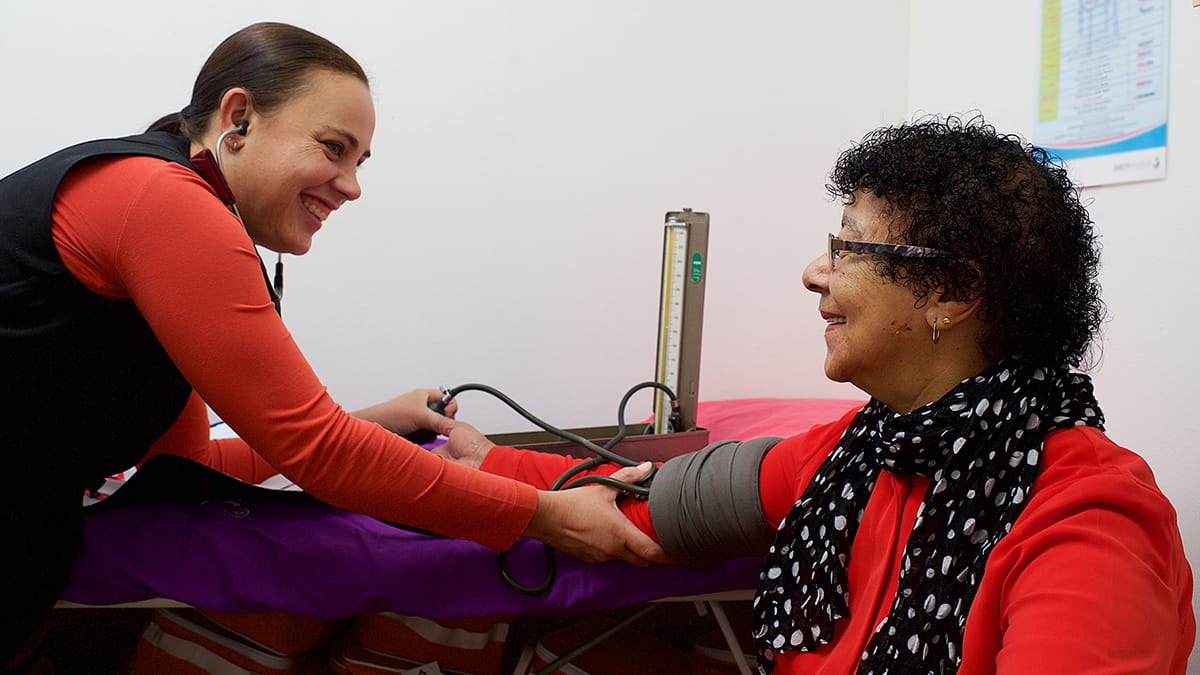Could it be a hidden heart murmur?
 What is a heart murmur?
What is a heart murmur?
A heart murmur refers to an abnormal sound your doctor hears when listening to your heart. It presents as a whooshing sound, and could be detected in anybody from a child to an elderly patient.
Most of these murmurs are innocent, meaning there’s no dangerous underlying condition behind them. However, some heart murmurs indicate a problem in the heart, such as leaky or narrowed valves or congenital conditions, such as a hole in the heart.
What are the symptoms of a heart murmur that you can detect at home?
The symptoms of a heart murmur depend on the underlying condition. You should seek further testing if you experience the following symptoms:
- Shortness of breath (particularly when doing activities you used to be able to do without difficulty, such as climbing stairs or walking to the car)
- Chest pains
- Unusual fatigue
- Signs of fluid retention (these may include swelling in the legs or abdomen, feeling bloated or sudden weight gain that can’t be explained from dietary causes)
- Trouble laying on your back (such as feeling smothered when you lie down to sleep at night, needing to prop yourself up with pillows or waking up suddenly and gasping for air)
- Lightheadedness, dizziness or passing out
In some cases, an indirect symptom may be heart palpitations or feeling your heart race.
If I have symptoms of a heart murmur, should I make an appointment with my doctor or go to the emergency room?
Whenever you experience chest pain or sudden severe shortness of breath, you should go to the emergency room.
If you have more subtle symptoms, then you can make an appointment with your primary care physician. You doctor will listen to your heart and do a thorough exam and history. If they have concerns, they’ll refer you to a cardiologist.
What are the treatments for a heart murmur?
If your doctor detects a heart murmur, they’ll investigate further with imaging, most commonly an echocardiogram, or ultrasound of the heart. Here they’ll be able to visually see any abnormalities in your heart’s structure and diagnose the cause of the murmur.
Depending on the condition causing the murmur, the treatment can vary. In many cases, the solution is surgery to repair or replace valves or holes in the heart.
New technology is evolving to perform surgery through catheter-based procedures, meaning completely opening the chest is unnecessary, but this option isn’t yet available for all types of valve disease.
What are the risk-factors for heart disease?
The major risk factors are smoking, high blood pressure, high cholesterol, diabetes and a strong family history of heart disease. You should get regular checkups and monitor your heart closely if you have one of these risk factors.
Conditions such as high blood pressure or cholesterol may be “silent,” meaning you may not have symptoms until you experience a serious cardiovascular event as a consequence. It’s important to be proactive in treating these conditions early. It’s much easier to prevent serious heart issues before they occur than to react to them afterward.
Can an innocent murmur turn into something more serious?
Yes, in the sense that chances of developing things like valve disease increase as you age. Conditions such as aortic stenosis, or the narrowing of the aortic valve, become more common in your 70s. You may not require treatment when the murmur is first detected, but it should be monitored closely. In many cases, it can be treated without progressing into a more serious problem.




